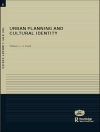European cities have for decades found themselves in a phase of important changes. Concomitantly multi-level and multi-actor policy processes have unfolded in the EU. Sub-national governments are facing new challenges as their manufacturing industry withers away, still more responsibility for matching the globalisation ch- lenges such as welfare, employment and general social improvements are tra- ferred from national to sub-national levels. This raises speci?c governance problems for city regions in their attempt to meet the demand from the emerging knowled- based society. Yet, no city or city region exists in a vacuum; they are all embedded in national settings with speci?c structures and traditions as well as different p- ceptions of challenges, needs and solutions. It appears that a general, neoliberal discourse has conquered the political agenda during the last one or two decades: That economic regeneration requires increasing competitiveness achieved by – forced stress on knowledge intensive industries, which itself needs more and better education. However, the implementation of such a strategy has many forms and the realities are often quite a step from the intended outcome. During the last three years, a group of about forty people has met regularly across Europe to develop the ideas as originally presented in the Memorandum of Und- standing, setting the agenda for the analysis of preconditions, strategies and o- comes among different cities in their effort to reconcile welfare and growth.
Tabla de materias
Discourses and Conceptualizations of Competitiveness and Cohesion.- Cities Between Competitiveness and Cohesion: Discourses, Realities and Implementation – Introduction.- Competitiveness and Cohesion: A Janus Head? Some Conceptual Clarifications.- Analyzing the Competitiveness of Cities and Regions.- Are Entrepreneurial Cities More Successful? Empirical Evidence from 50 German Cities.- Competitiveness and Cohesion in the Spanish Provinces: A Territorial Approach.- Globalizing Urban Economies and Social Inequality: An Empirical Assessment. The Case of Amsterdam and Rotterdam.- The Conditional Nature of Relations Between Competitiveness, Social Cohesion and Spatial Inequalities: The Evidence from Istanbul.- Detecting Social Cohesion in Cities and Regions.- Immigration and the Spatial (Dis)Equilibrium of Competitiveness – Cohesion in Athens.- Labour Migration and Social Cohesion – Some Empirical Evidence from Vienna.- From Survival to Competition? The Socio-Spatial Evolution of Turkish Immigrant Entrepreneurs in Antwerp.- Maribor – Housing Strategies in a Slovenian City Linking Competitiveness with Social Cohesion.- Practice of the Competitiveness and Cohesion Discourse in Urban and Regional Development.- Sustainable Urban Regeneration in a Global City – The Regeneration of Paddington Basin.- Finnish Urban Districts – New Actors in Multi-Level Governance.- Reconciling Competitiveness and Social Cohesion in Urban Regions – The Role of Transport Policy.- Positioning Bratislava in an Emerging Cross-Border Metropolitan Area.- Reconciling Competitiveness and Cohesion – Conclusions.- Conclusions – Competitiveness and Cohesion: One Discourse, Multiple Realities and New Challenges for Policy and Research.












